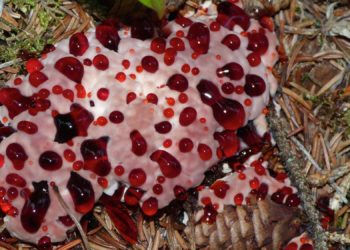Tomatoes are readily available and affordable vegetables that offer a range of health benefits due to their bioactive molecules, such as antioxidants and antimicrobials. In contrast to the widely recognized antioxidant properties of tomatoes, their antimicrobial properties are largely unexplored. In a new study, scientists at Cornell University investigated the antimicrobial properties of tomato juice as well as tomato-derived antimicrobial peptides in relation to their effectiveness against foodborne pathogens with an emphasis on Salmonella Typhi, a pathogen that specifically affects humans and is responsible for causing typhoid fever.
Tomatoes, scientifically known as Solanum lycopersicum, are highly popular vegetables globally, owing to their exceptional taste and wide range of applications in various culinary traditions.
The nutritional composition of tomatoes, including their abundance of beneficial compounds like lycopene, polyphenols, and vitamins, has been extensively studied and linked to a wide range of health advantages.
Additionally, tomatoes have the advantage of being able to thrive in a wide range of regions with varying climate conditions.
According to the 2021 report by the UN’s Food and Agriculture Organization, Asia is the leading global producer of tomatoes, representing 64.8% of the total global tomato production.
Europe, Africa, North America, and South America account for 13.3%, 11.6%, 5.98%, and 3.95% of the total tomato production, respectively.
“Our main goal in this study was to find out if tomato and tomato juice can kill enteric pathogens, including Salmonella Typhi, and if so, what qualities they have that make them work,” said study’s senior author Dr. Jeongmin Song, a researcher at Cornell University.
In lab experiments, Dr. Song and her colleagues checked to see if tomato juice really does kill Salmonella Typhi.
Once they ascertained it did, the researchers looked at the tomato’s genome to find the antimicrobial…
Read the full article here







